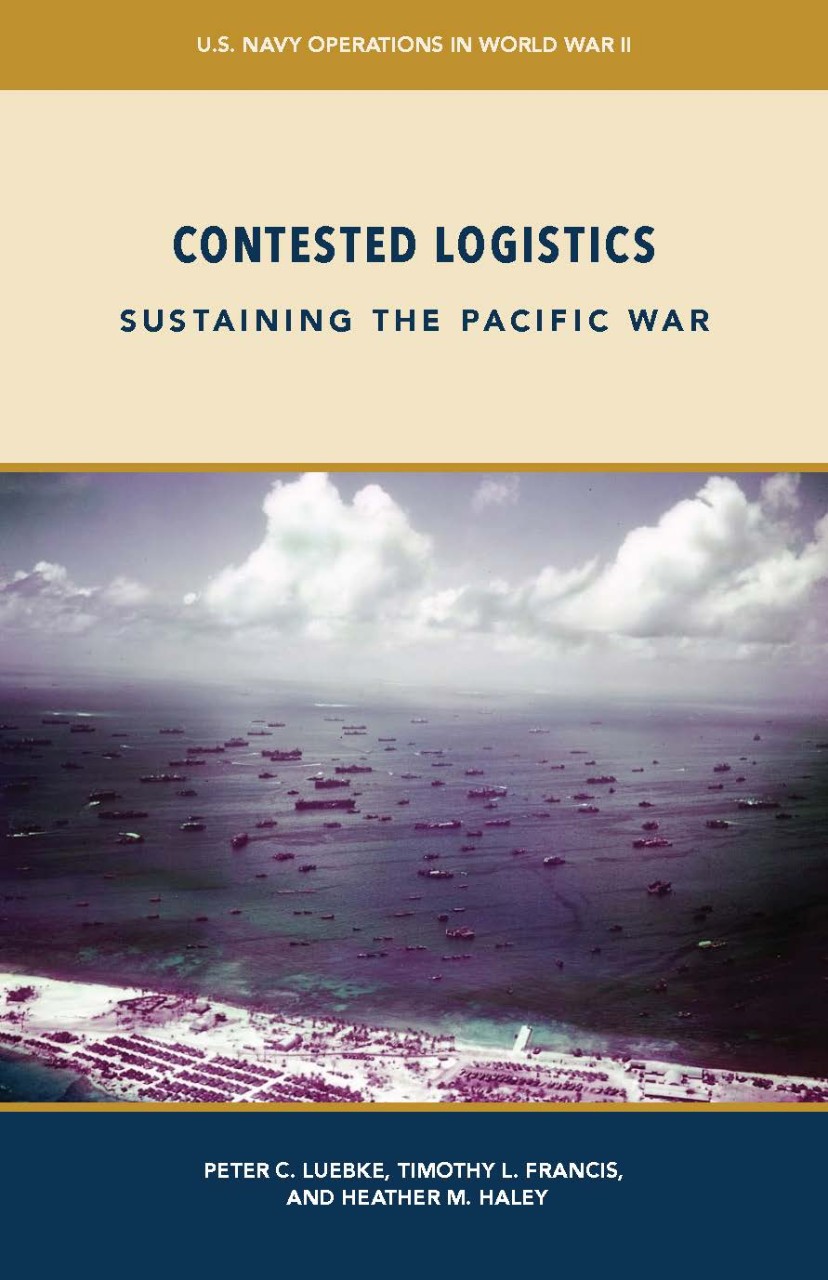Contested Logistics: Sustaining the Pacific War
Peter C. Luebke, Timothy L. Francis, and Heather M. Haley
ISBN 978-1-943604-88-3
Available free in the following format: 508-compliant PDF (7 MB)
Before World War II, the U.S. Navy relied on an ad hoc system to manage logistical support for its ships. The scale and geography of the war in the Pacific nullified earlier ways of acquiring and distributing sufficient materiel. This booklet explores the ways in which the Navy conceptualized and implemented overseas logistics from the age of sail through the Pacific War. These processes, both in their planned form and actual operation, reveal two significant themes: (1) logistics is line work; and (2) preparation and planning ahead of time are critical for the successful execution of operations, without which the Navy struggled to supply forward-deployed personnel.
Chapter 1 explores how and when Navy officials realized they needed to create a logistics apparatus as the fleet grew and traveled to remote regions across the globe. Chapter 2 examines how the crises of the 1930s before World War II gave the Navy critical time to logistically prepare for war. Chapter 3 identifies how inexperience created difficulties in early logistical sustainment efforts at Bora Bora. Chapters 4 and 5 trace the execution of early Pacific War logistics, with particular emphasis on the ad hoc solutions that defined Rear Admiral Richmond Kelly Turner’s efforts at Guadalcanal. Chapter 6 focuses on how the Navy addressed logistics shortcomings in the later years of the Pacific War. Finally, Chapter 7 documents how the Navy’s postwar logistics system explicitly aimed to consolidate and transmit lessons learned.
Related Resources
Publication Fact Sheet (948 KB pdf download)
Publication Informational Postcard (489 KB pdf download)



